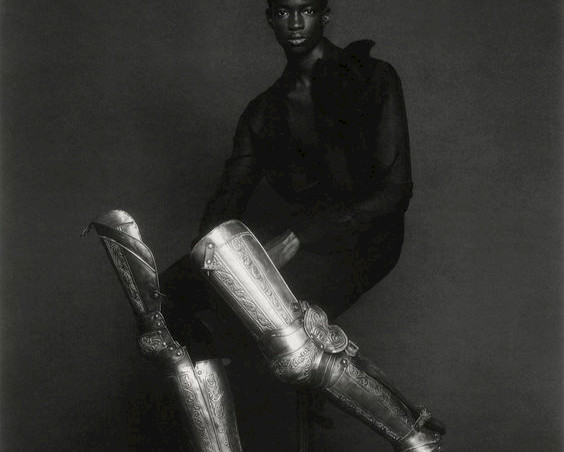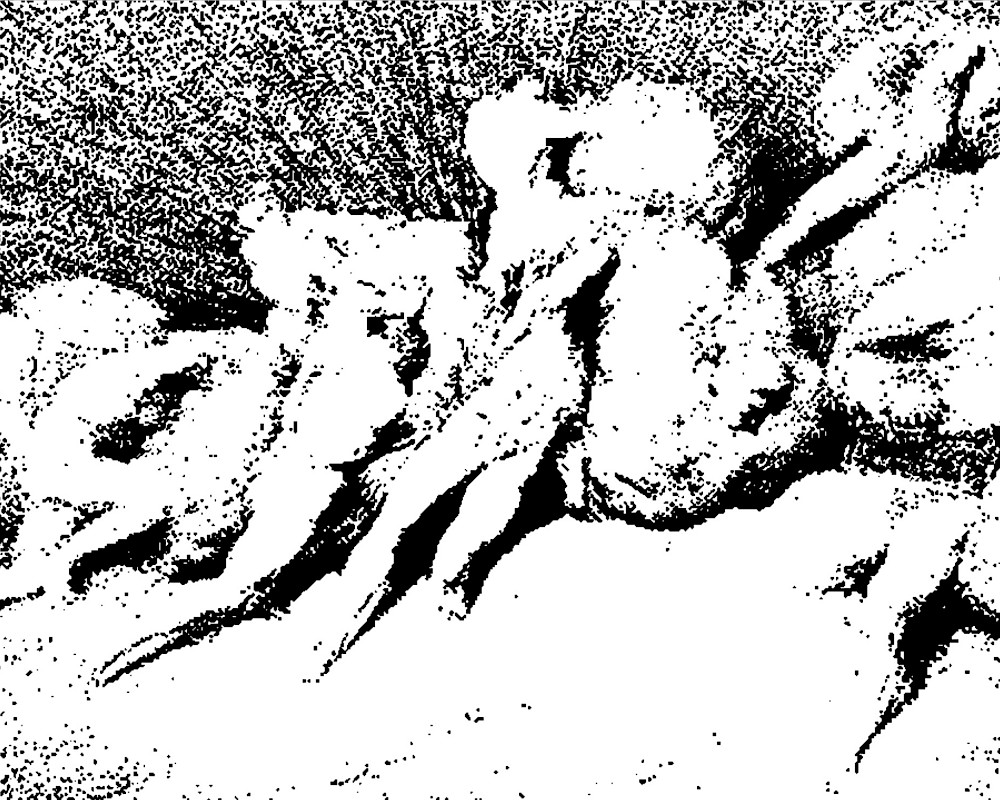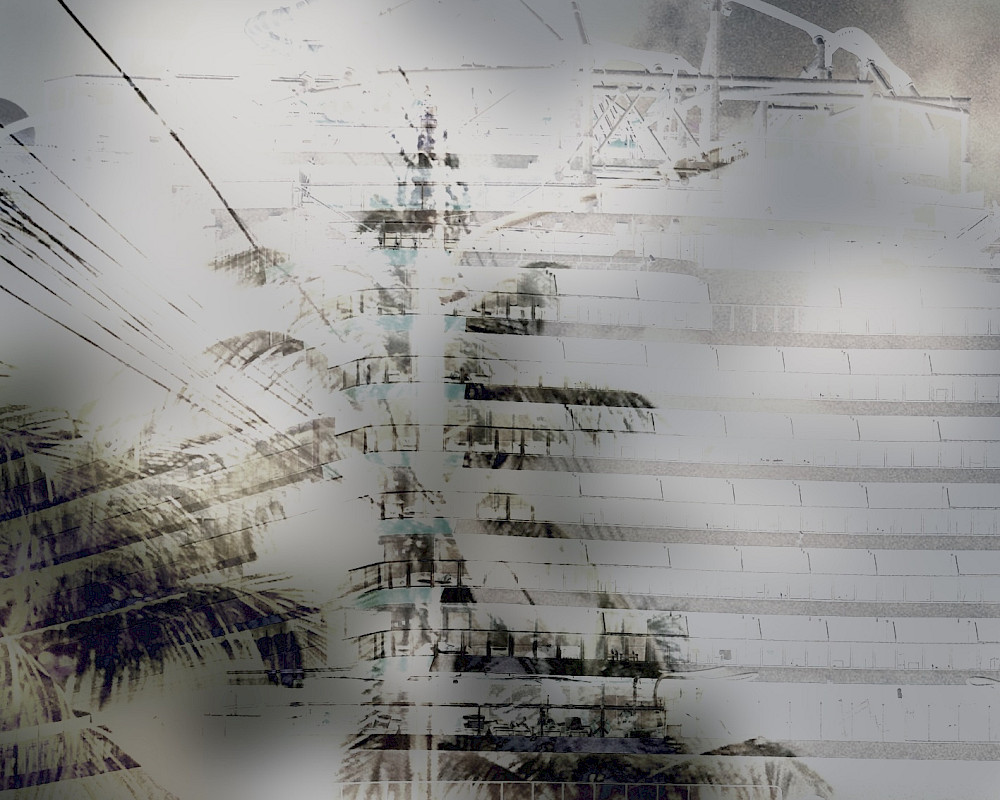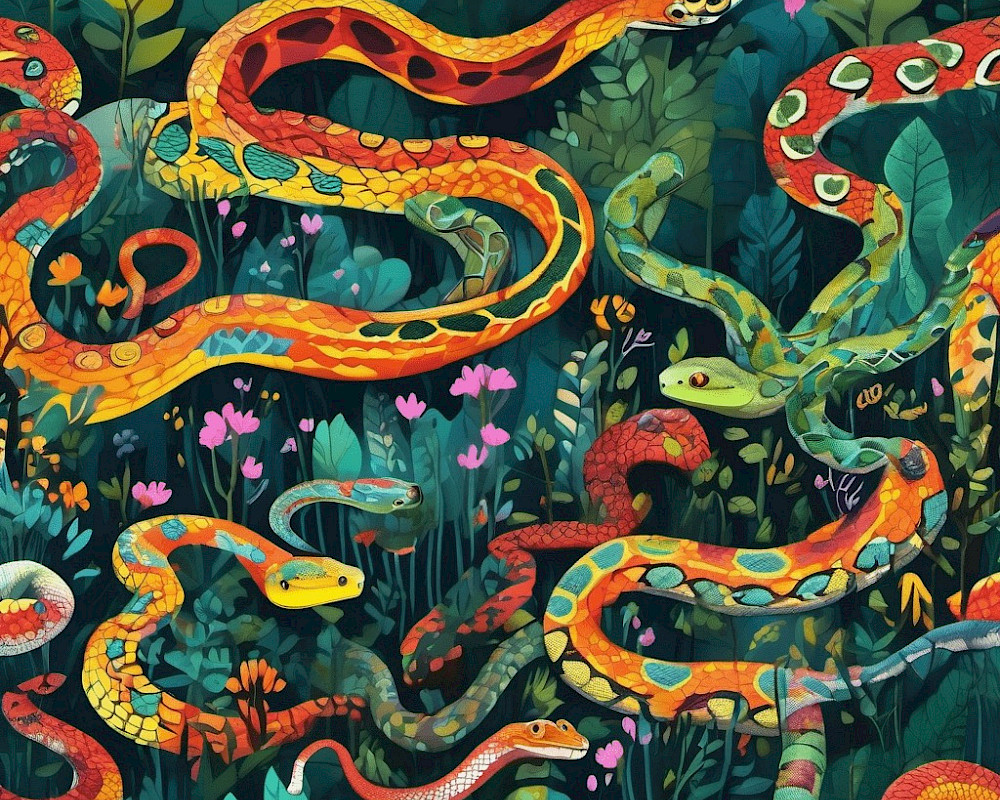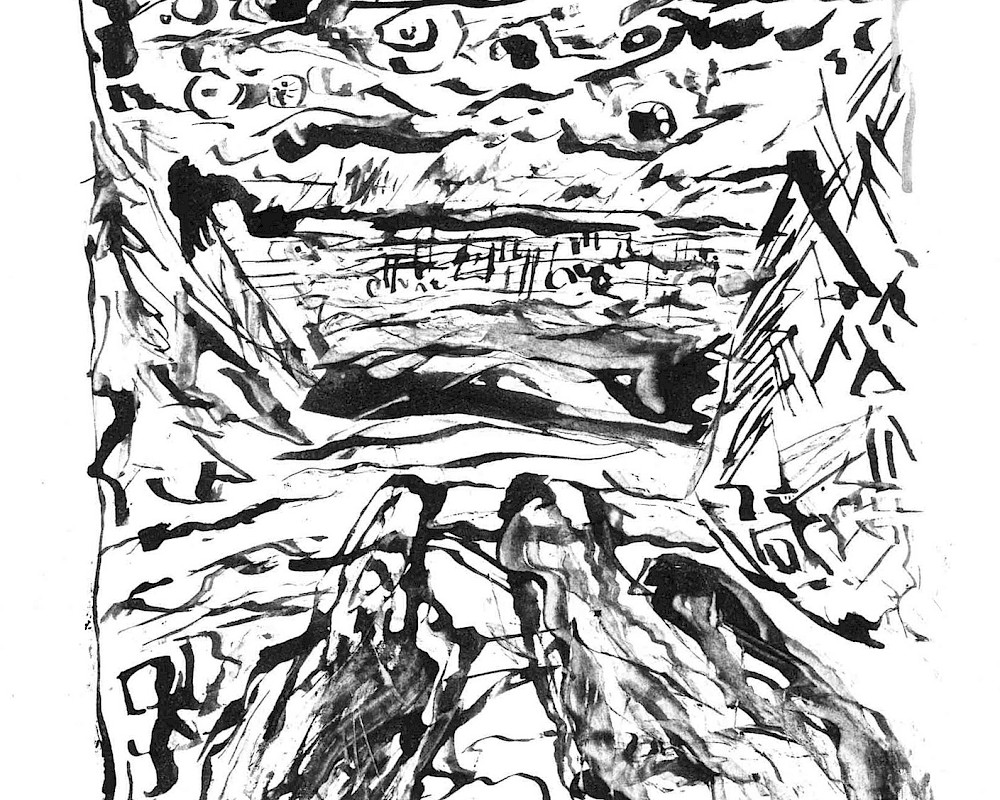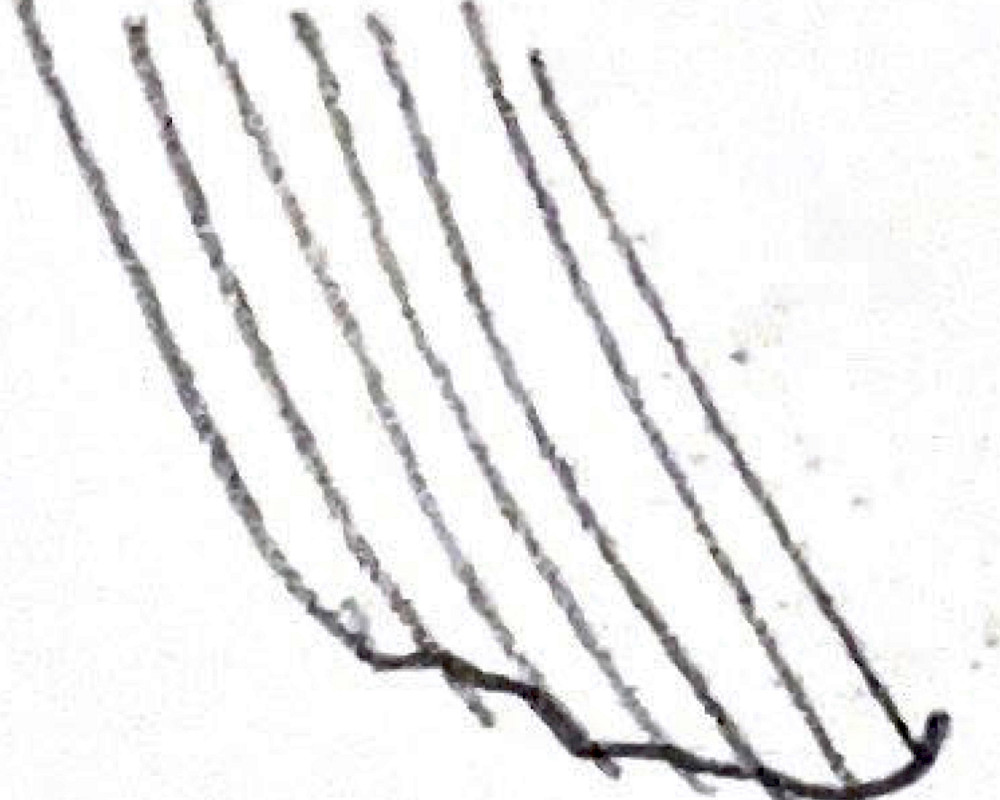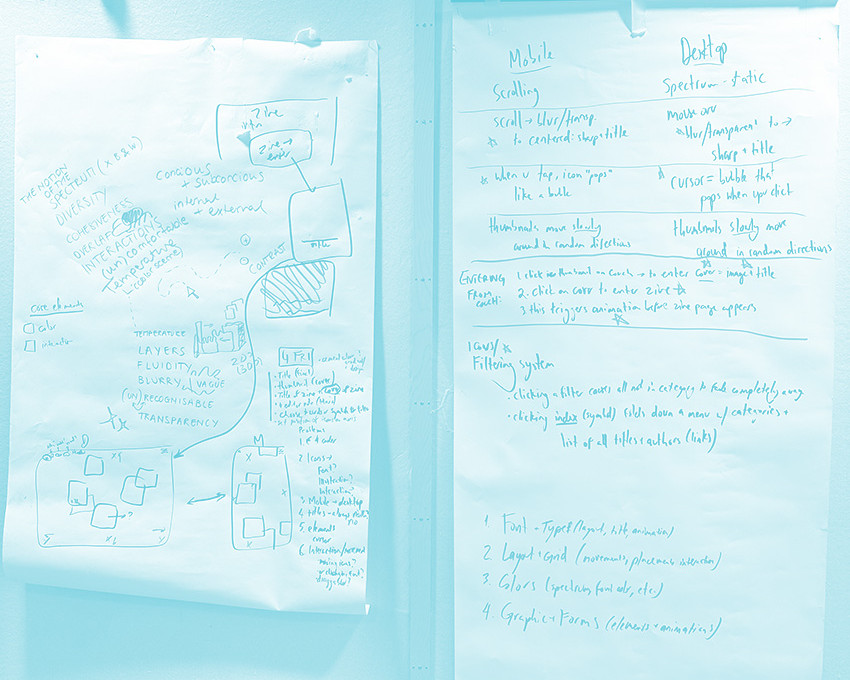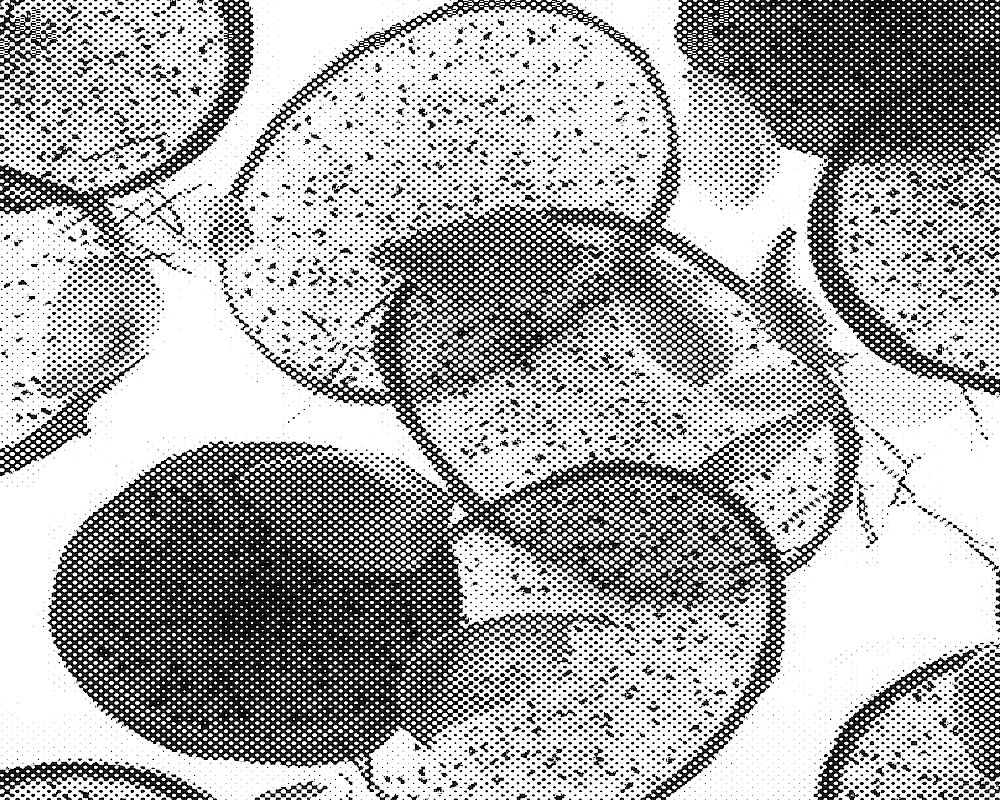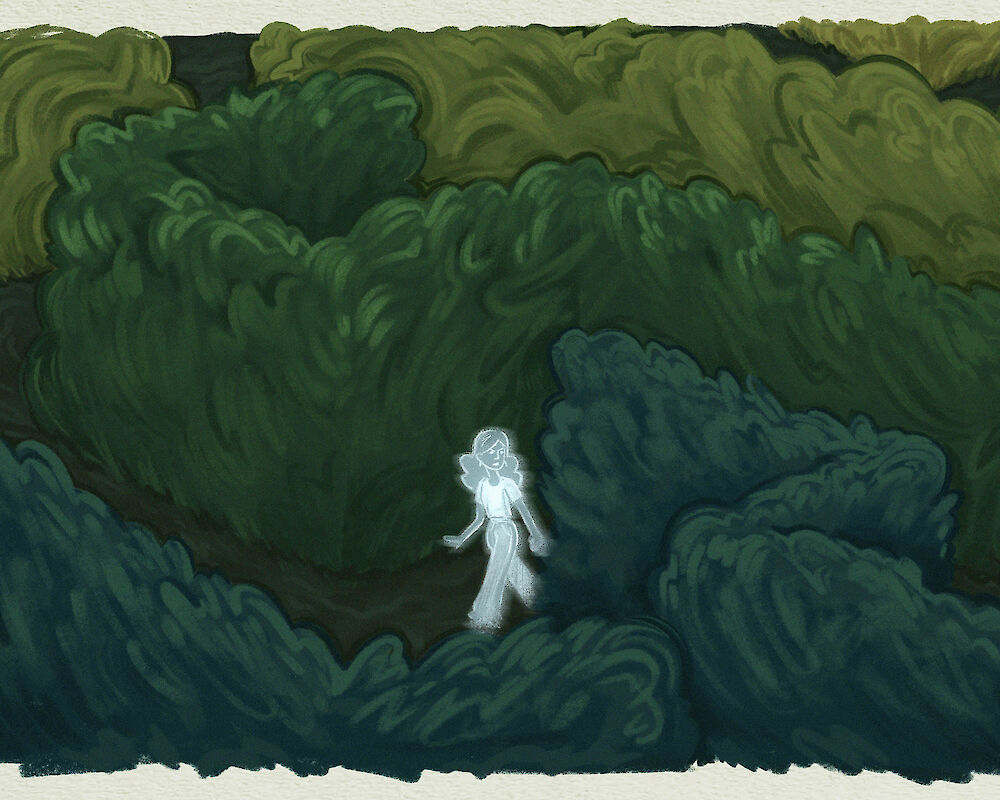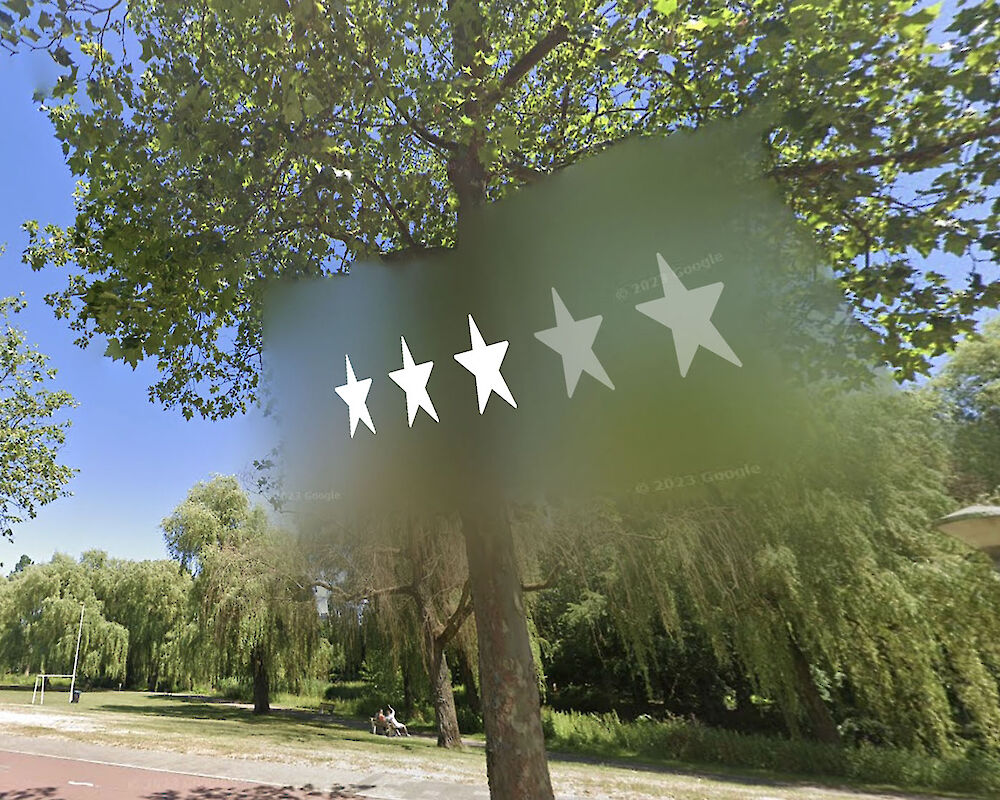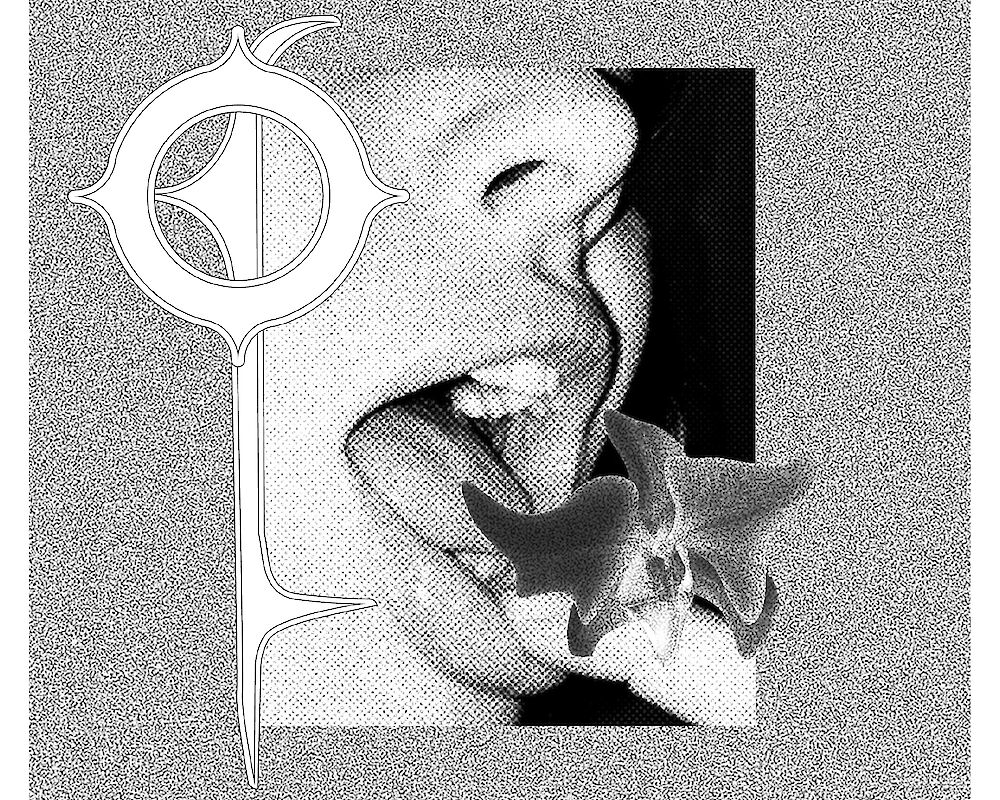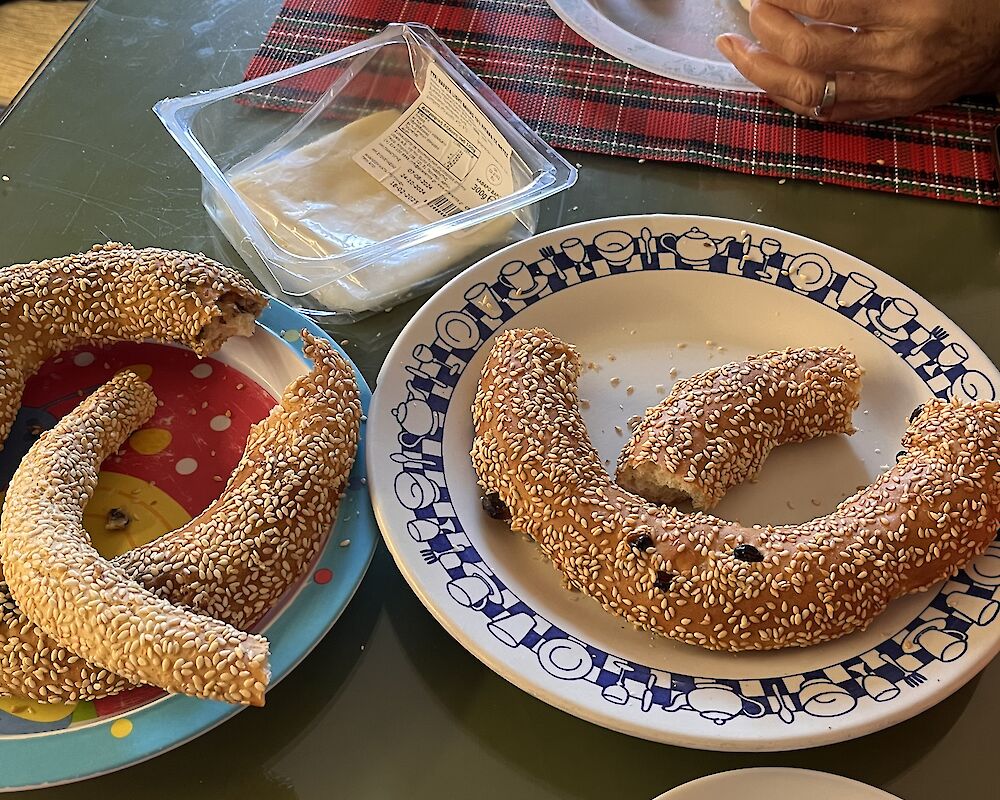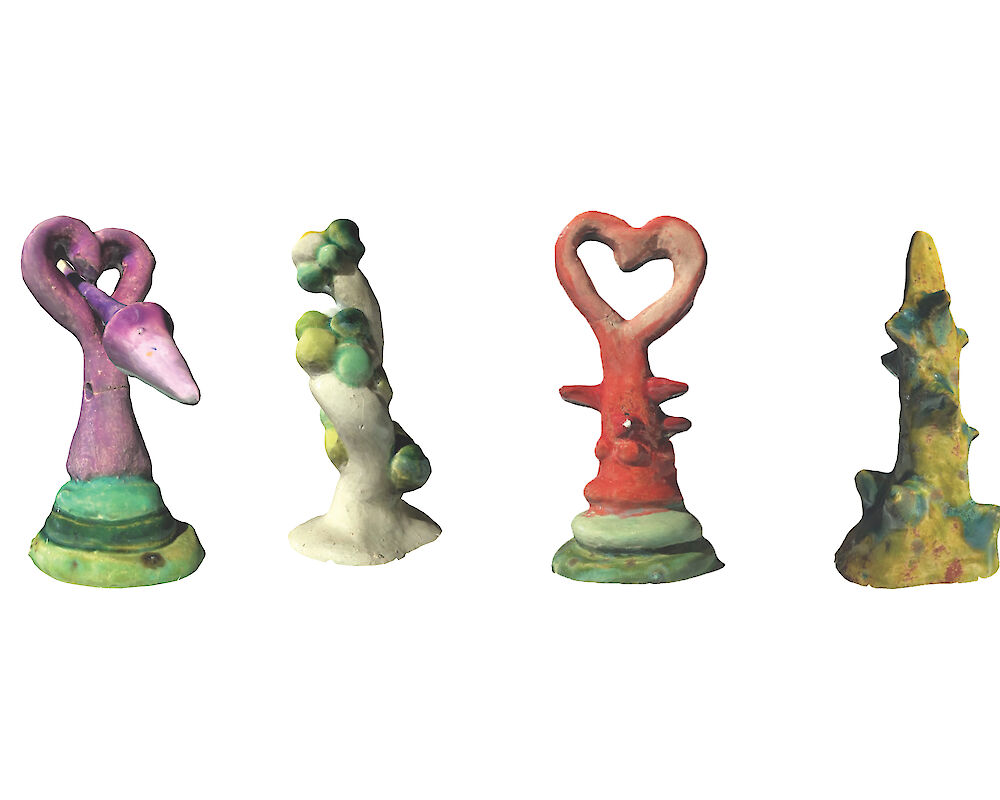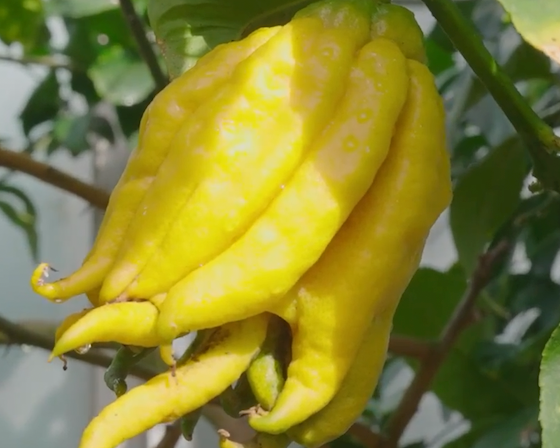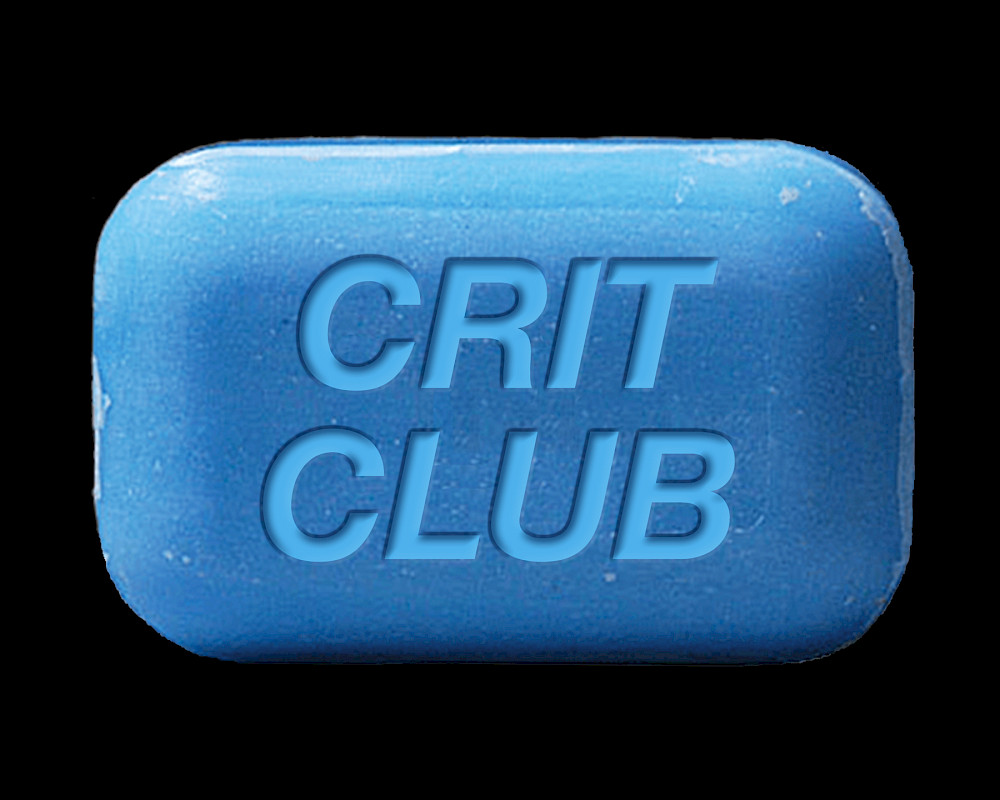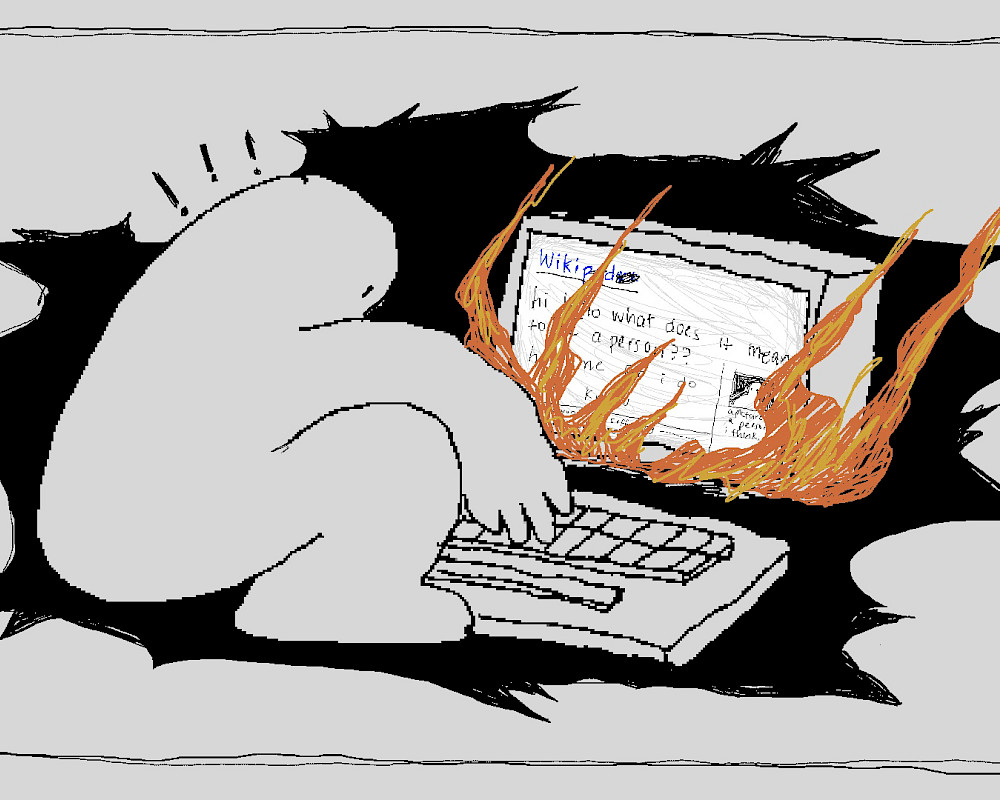essay
singing about bananas
Marie-Lu}ise{ Charlotte Weier
Marie-Lu}ise{ Charlotte Weier is a multidisciplinary designer from Germany. In her work, she questions social structures, looks at details or plays with materiality. –> ise-y.com
Savio Banholzer
Savio Banholzer is media designer based in Germany. ↗ saviobanholzer.de
9
min read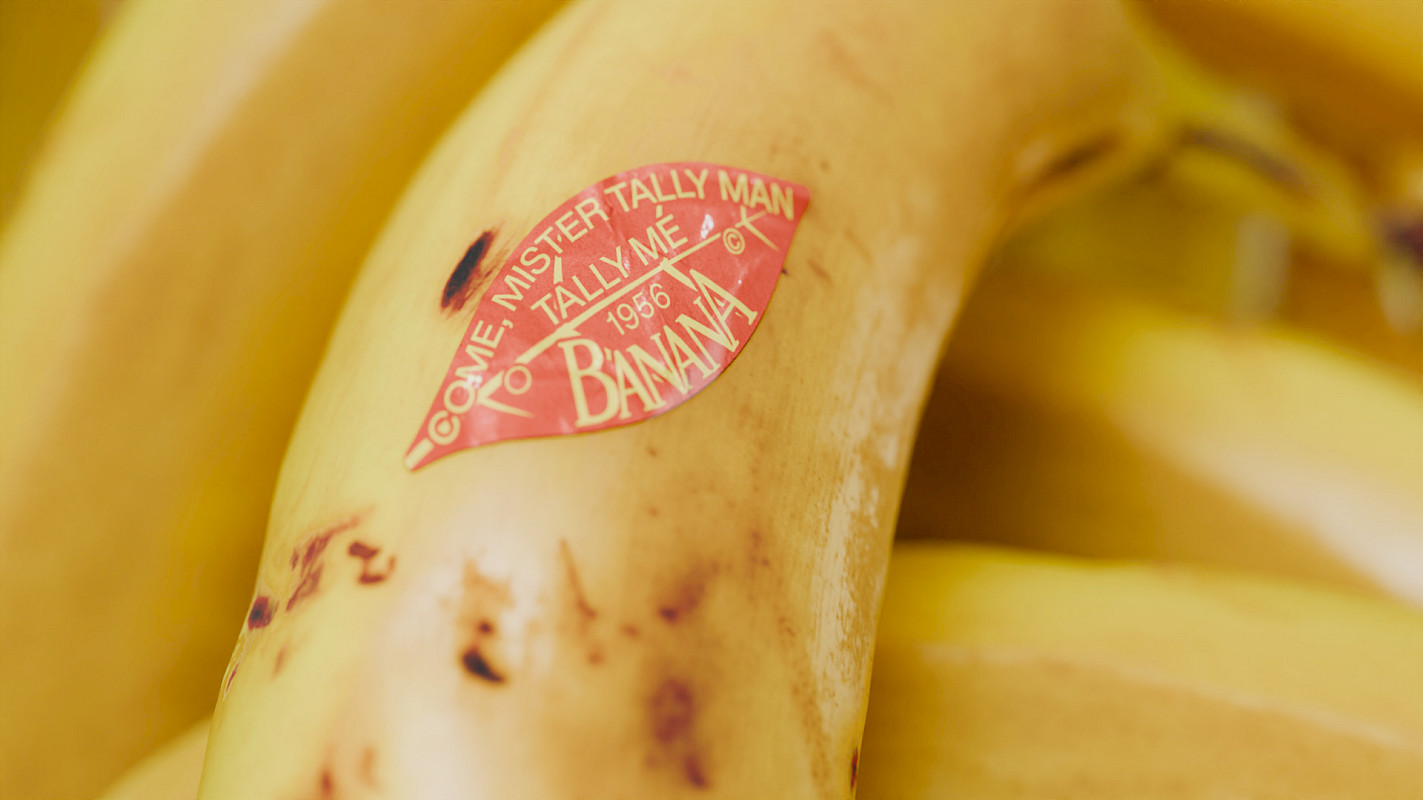
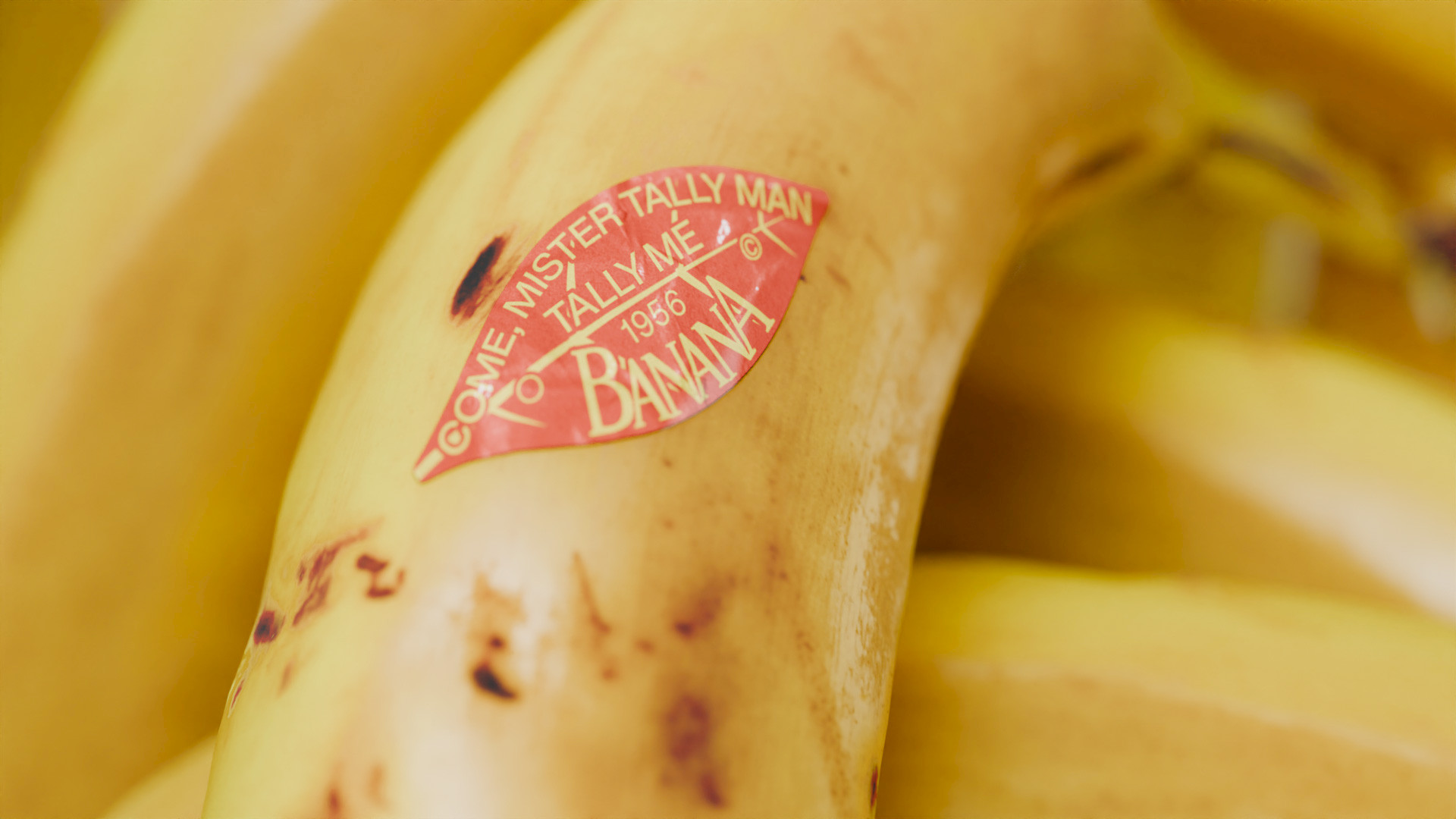
This morning, I woke up and had an earworm [1], a song in my head. I could not stop singing or humming it and I have known the song since I was a child. It is by Rolf Zuckowski, who is known for his children's songs. The song "Theo (The Banana Bread Song)" has a groovy melody, simple lyrics, and therefore perfect conditions to get stuck in my head.
There is a saying that you must listen to the song to get rid of the earworm - but this had the opposite effect on me. As with every other song from my childhood, I know the lyrics and melody by heart. But when I listened to the song again, it felt super strange. A spoilt boy asks for a slice of bread with a banana topping. He pretends to be extremely hungry and asks the person in question Theo to hurry up: “Mach ein bisschen dalli, Mann!” (German slang for "Hurry up a bit, man!"). Theo is the namesake of the song and thus also the main character but has no lyrics or vocal part of his own. He is only asked to make the banana bread. His name Theo [ˈteːo] is also used for a play on words: He sings "Dear Theo", which then becomes the French word "liberté", freedom.
“Lieber The-/
Lieber The-/
Lieber Theeee-o"
sounds like: “Liberté/ liberté/ Liberté-o”. Iconic or ironic? I wanted to investigate the connection between bananas and freedom and fell down a rabbit hole. Bananas play a key role in colonialism and the prevention of democracy. Even the CIA was involved in a coup against a new, democratically elected government - "on behalf" of bananas.
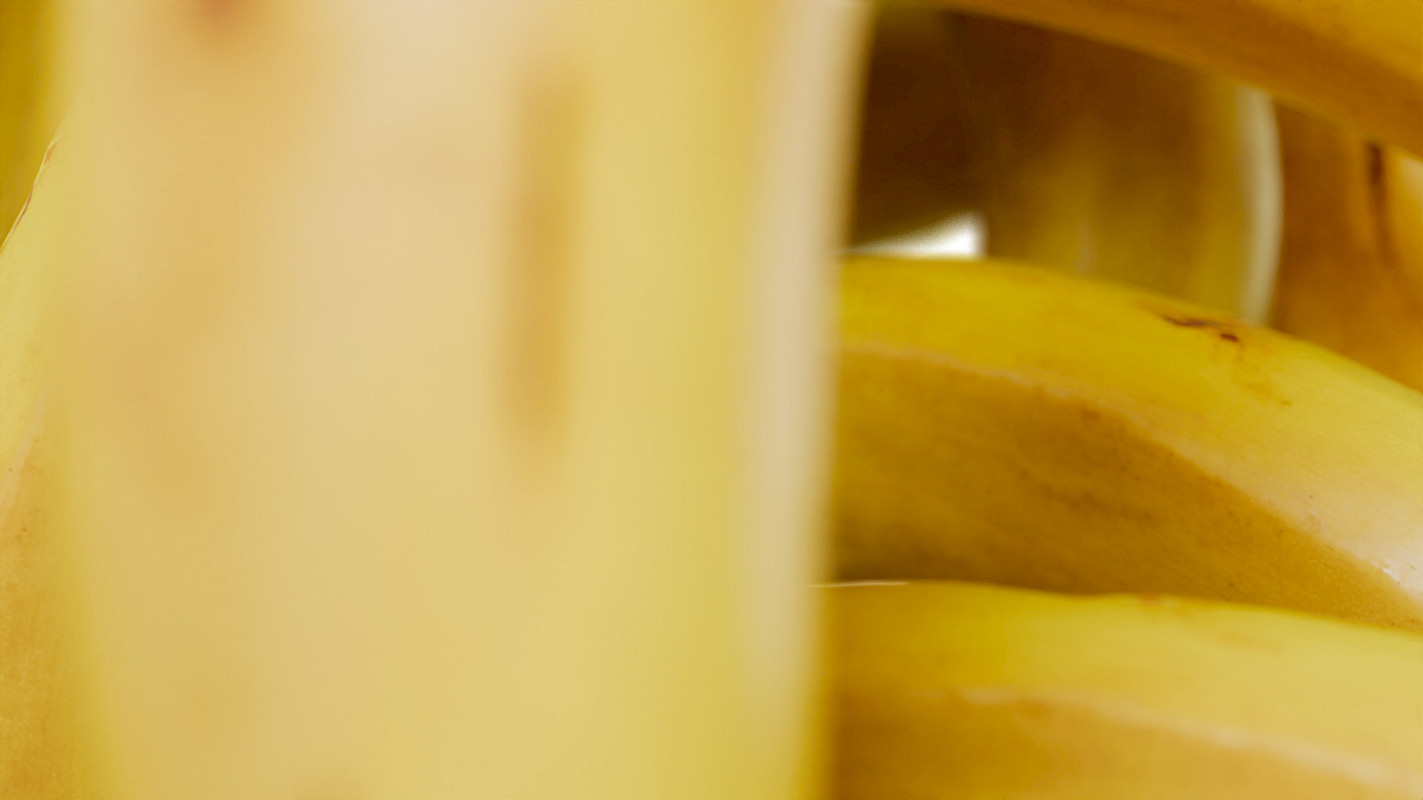
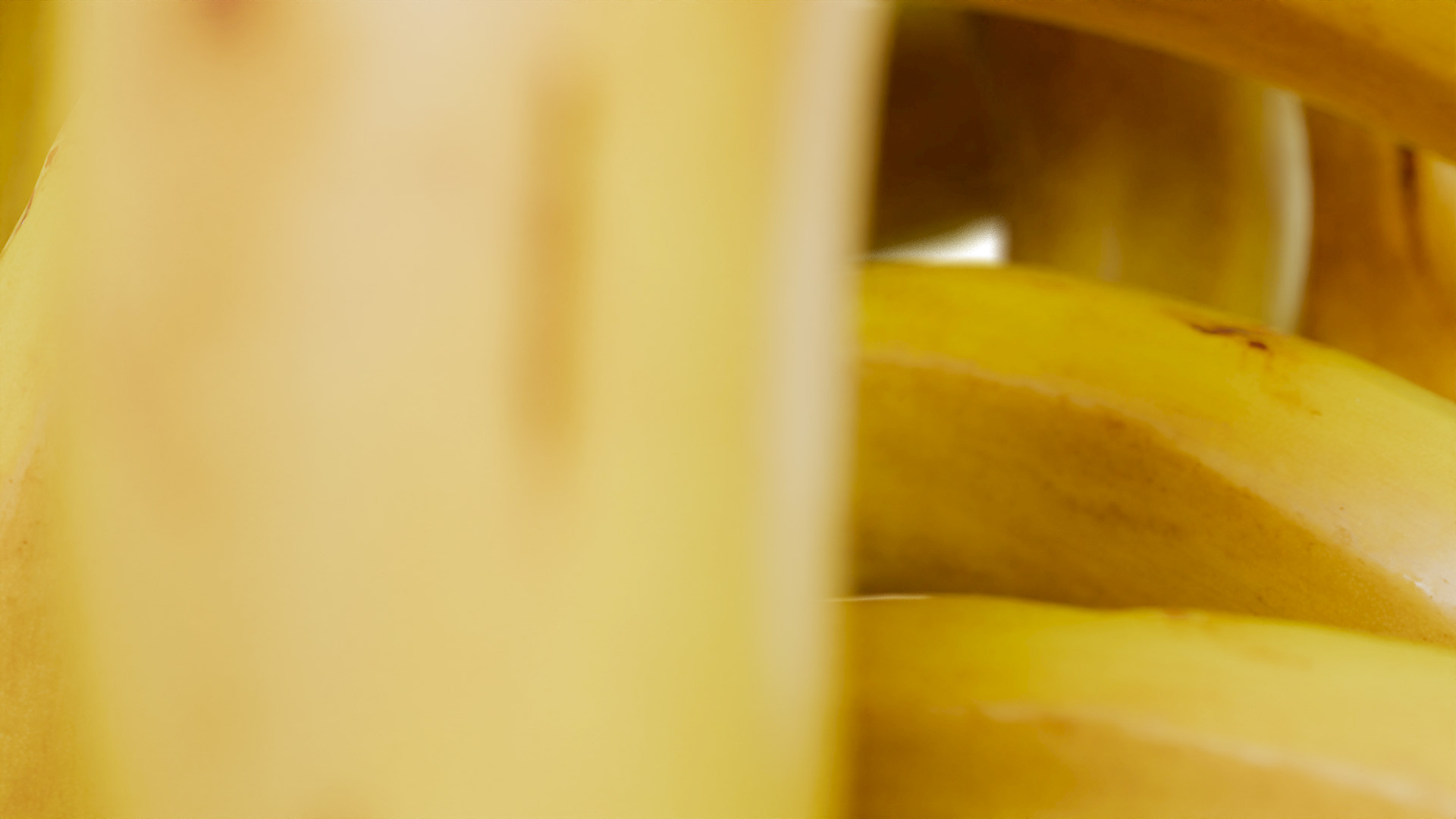
It is worth taking a closer look at the "United Fruit Company" (now known as "Chiquita"!): the multinational company mainly traded in bananas: grown in Latin America, sold in the USA and Europe. The company thus exerted a strong influence on domestic policies that can be described as exploitative neo-colonialism, and held a quasi-monopoly in Costa Rica, Honduras, and Guatemala, which were then (racistly) called "banana republics". [2] The company received tax-free land along the railway line and a 99-year lease for its operation. With this base, the cultivation of bananas there was very lucrative. [3]
The United Fruit Company was hired by the Guatemalan government to manage the national postal service, founded the Tropical Radio and Telegraph Company, swallowed up more than 20 competing companies, acquired a capital of 215 million dollars and became the largest employer in Central America. They played a key role in several national economies and at the same time symbolized the exploitative export economy. The company owned 3.5 million acres (14,000 km2) of land in Central America and the Caribbean and was the single largest landowner in Guatemala. At the same time, they destroyed the ecosystems in these areas through banana plantations and biodiversity. The Great Banana Strike of 1934, in which more than 30 individual unions and 100,000 workers took part, went down in history as a major industrial action by Costa Rican farmers and led to the formation of effective trade unions in Costa Rica. [4]
The Guatemalan government also began expropriating unused land belonging to the United Fruit Company to landless farmers in 1952. [5] The company responded with intensive lobbying of the US government and a disinformation campaign that portrayed the Guatemalan government as communist. [6] In 1954, the U.S. Central Intelligence Agency deposed the democratically elected Guatemalan government and installed a pro-business military dictatorship. [7]
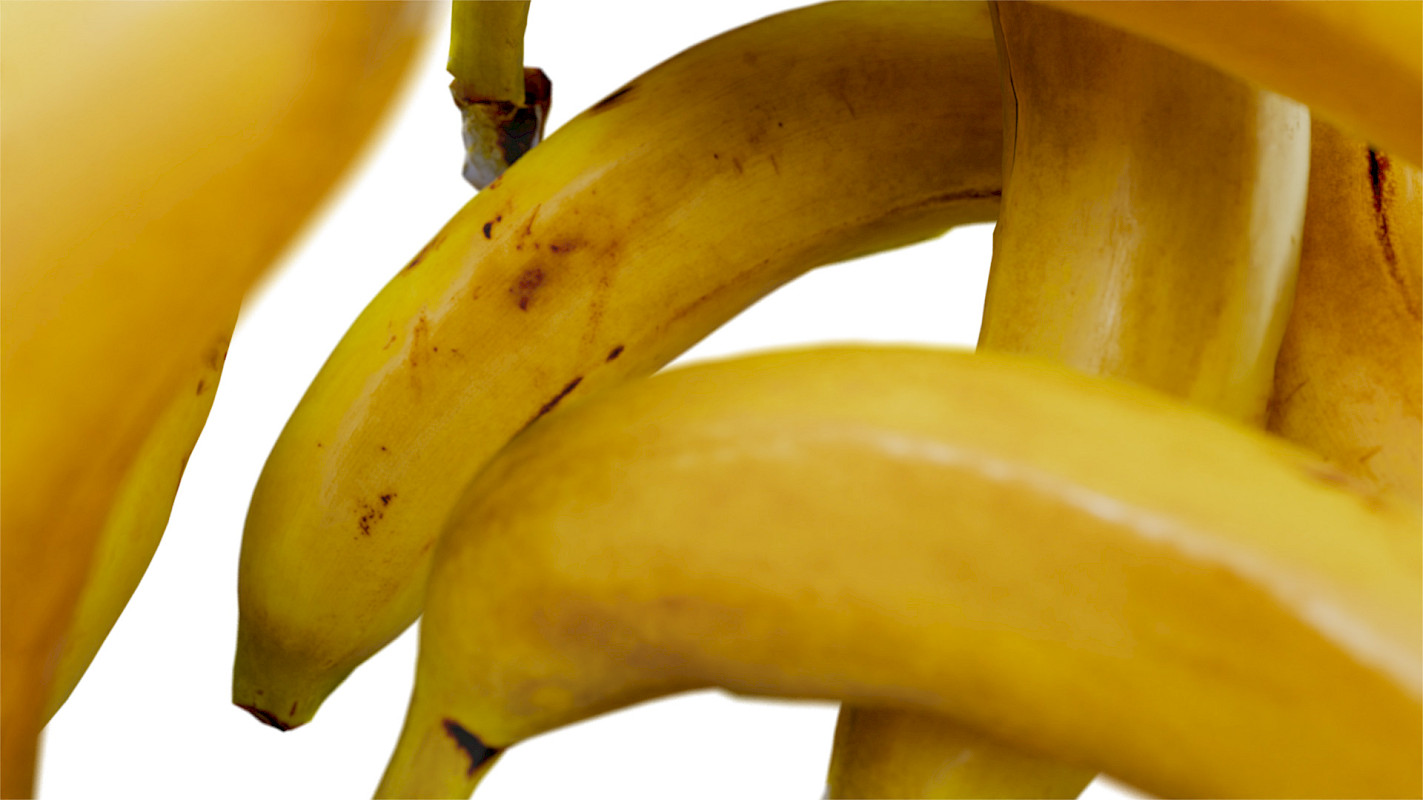
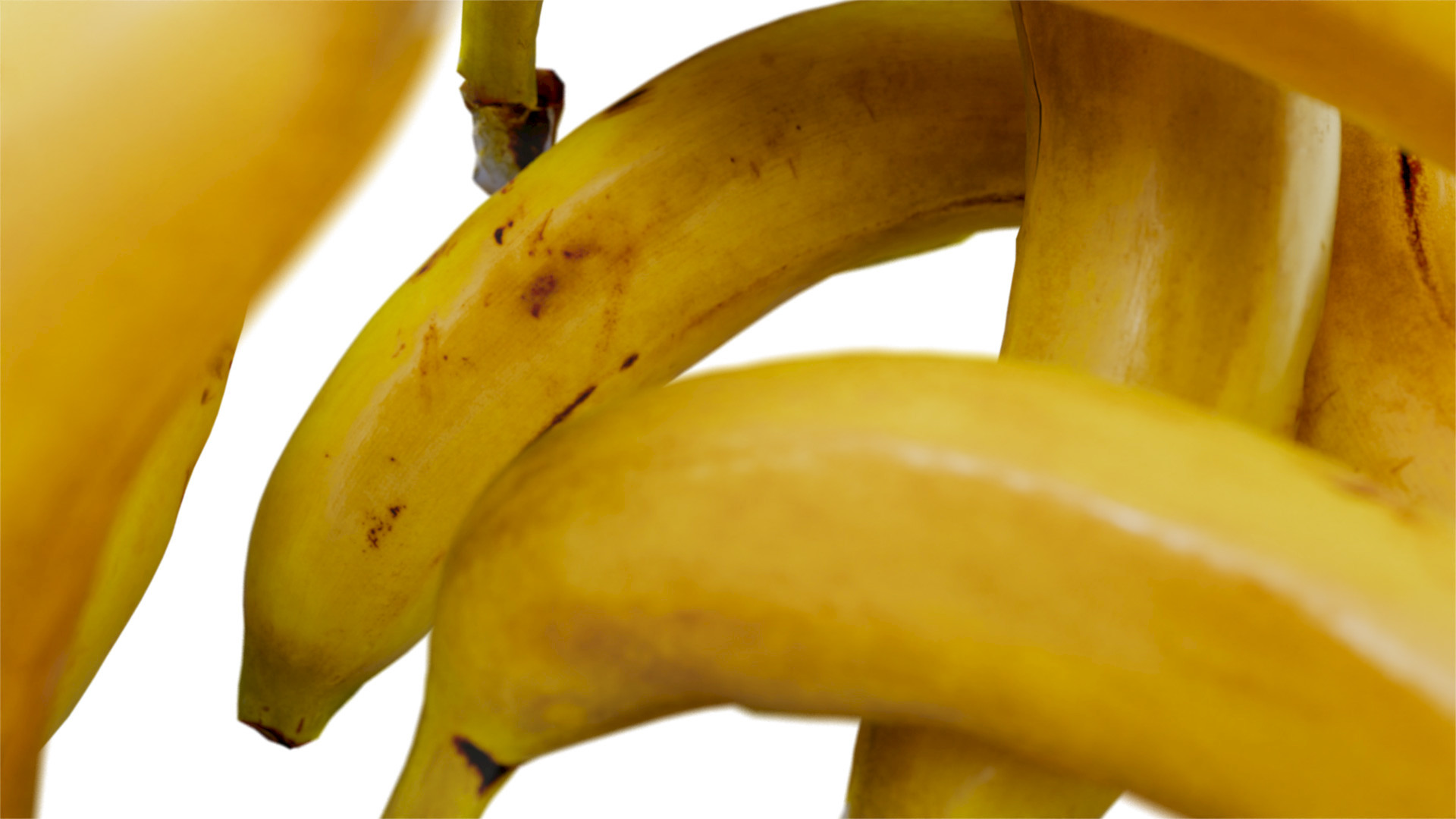
Pablo Neruda wrote in "La United Fruit Co." (1950): “The Fruit Company, Inc. reserved (…) the central coast of my own land, (…) rechristened its territories 'Banana Republics', (...): it abolished free will, gave out imperial crowns, encouraged envy, attracted the dictatorship of flies ... flies sticky with submissive blood and marmalade, drunken flies that buzz over the tombs of the people, circus flies, wise flies expert at tyranny.” Honduran President Oswaldo López Arellano was bribed with 1.25 million dollars by United Brands (a new company formed from United Fruit and AMK) and was promised a further 1.25 million dollars in return for a reduction in certain export taxes. After this was uncovered by the US Securities and Exchange Commission in 1975, trading in United Brands shares was halted and López was deposed in a military coup. The elected government of Colonel Jacobo Árbenz was also overthrown in Guatemala. This military operation was commissioned by the Eisenhower administration and armed, trained and organized by the U.S. Central Intelligence Agency.
Why? The directors of the United Fruit Company had convinced the Truman and Eisenhower administrations that Colonel Árbenz intended to ally Guatemala with the Eastern Bloc. Whether Árbenz was a communist at all is debatable... But the UFCO, as the largest landowner and employer in Guatemala, felt threatened by the Árbenz government's agrarian reform laws and new labor code. In addition, the land reform programme planned to expropriate 40% of UFCO's land. [8] UFCO built extensive railways and ports, schools, provided jobs and transport facilities, but also stopped the government in Guatemala from building highways to maintain its profitable transport monopoly. UFCO also destroyed at least one of these railways when it left its operating area.
Sounds like this company should not be allowed to operate anymore, huh?
The company was renamed in Chiquita Brands International and moved its headquarters to Switzerland. And the fundamental attitude towards people and the environment is unlikely to have changed much: in 2017, the German ÖKO-TEST rated Chiquita bananas as "poor" because they are heavily contaminated with pesticides and the workers work in poor conditions.
But back to the German banana bread song: I still have the melody on my lips for the next few days - whereupon a friend speaks to me. He says he loves this song by Belafonte. Harry Belafonte? That is his signature song. Wow, I did not know that. So, I listen to "Day-o (The Banana Boat Song)", and I cannot believe I am hearing the exact same melody. The same rhythms, the same drums and trumpets. Even the sound of the lyrics seems to be the same. But the Banana Boat song is in English, based on a traditional Jamaican folk song. It is a call-and-response labour song and probably originated in the beginning of the 20th century when the banana trade in Jamaica was on the rise. Jamaican dock workers sang the song, usually working at night to avoid the heat of the sun during the day. At dawn, their boss would come, count the bananas and they could go home.
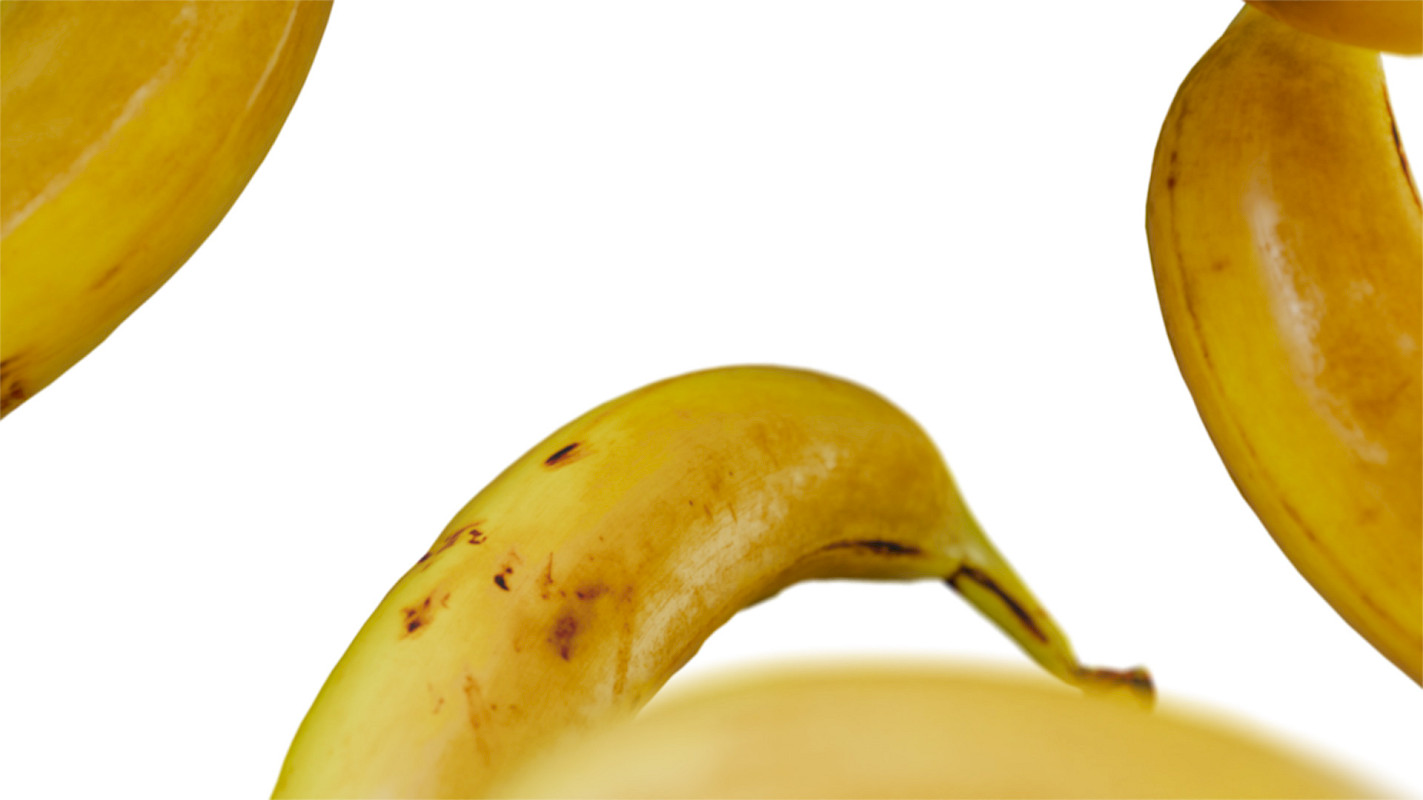
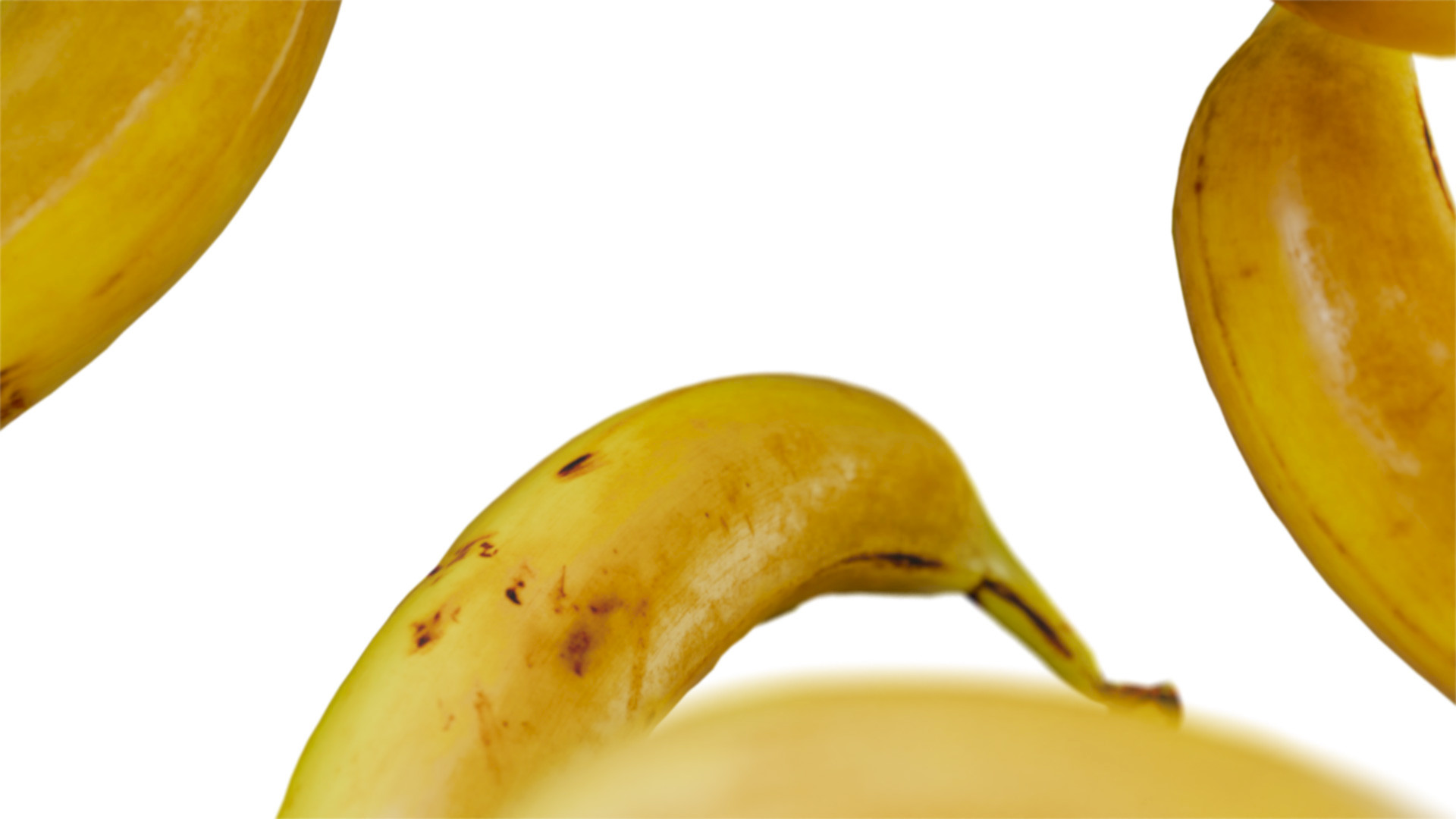
Rolf used exactly this song - but not to explain the whole colonial context, the poor working conditions and the strenuous work of the harbour workers or the dirty banana business in a child-friendly way in a children's song. “Come mister Tallyman, Tallé me banana” was used to say “Mach ein bisschen dalli, Mann!” (German slang for: Hurry up, man!) to make banana bread. I know it is normal to cover songs or remix old melodies and use them to write new lyrics. In Germany, that is not a problem at all legally in terms of artistic freedom.
But I find it problematic that he simply switches roles with the new lyrics, from the perspective of the colonized workers to the perspective of a child of the colonizers. With the same melody, the same instruments, a very similar accompaniment, this role reversal is not reflected musically in my opinion. Now that I know the Jamaican song, Rolf's version feels like cultural appropriation. A fun, happy song with a rhythm that children intuitively move to. So, my first thought would be to at least banish Rolf's version from my life and certainly not to play it to any children.
However, by recreating the play on words of Lieber-Theo > Liberté, one could also read the call for liberation or freedom as a universalist human good: the term Liberté as the goal of the Enlightenment and the French Revolution and "Make me a banana bread" as a moral appeal. With every banana bread, which has also gained new influence today through numerous social media recipes, I also have an influence on whether I support this company or this policy. Buying as a political consumer decision and boycotting as a joint withdrawal of power.
A banana bread without Chiquita bananas and without a guilty conscience would taste even better. Or should we also reconsider our position on fruit seasons and origin? But as long as it is easiest to buy fruit in the supermarket that is available from all over the world at any time - and as long as the Chiquita banana is available in most supermarkets, highly promoted and the cheapest banana - the structural problem must also be solved on a structural level. Just because I am not going to play the banana breadsong anymore, and I am not going to buy bananas anymore, it is not going to affect the music or banana business.
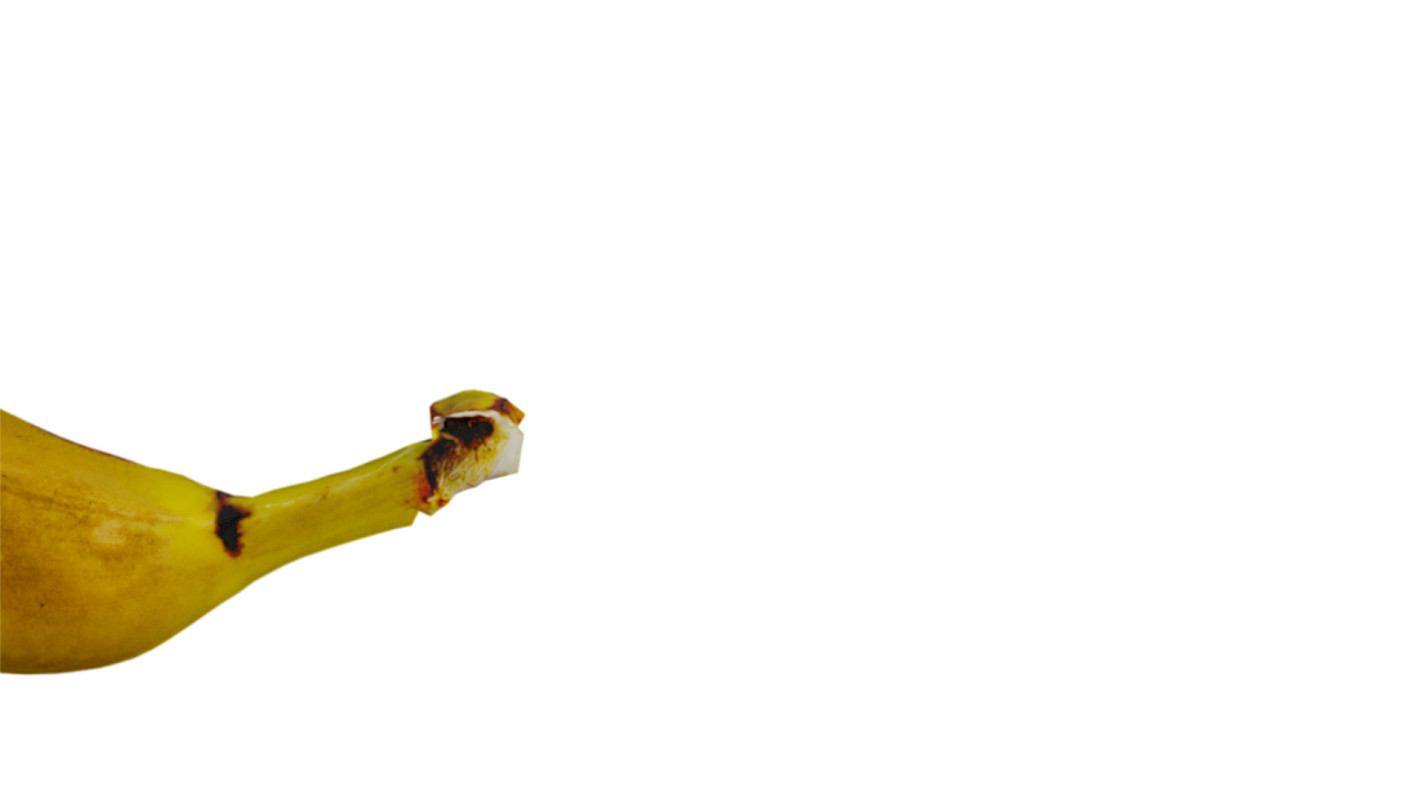
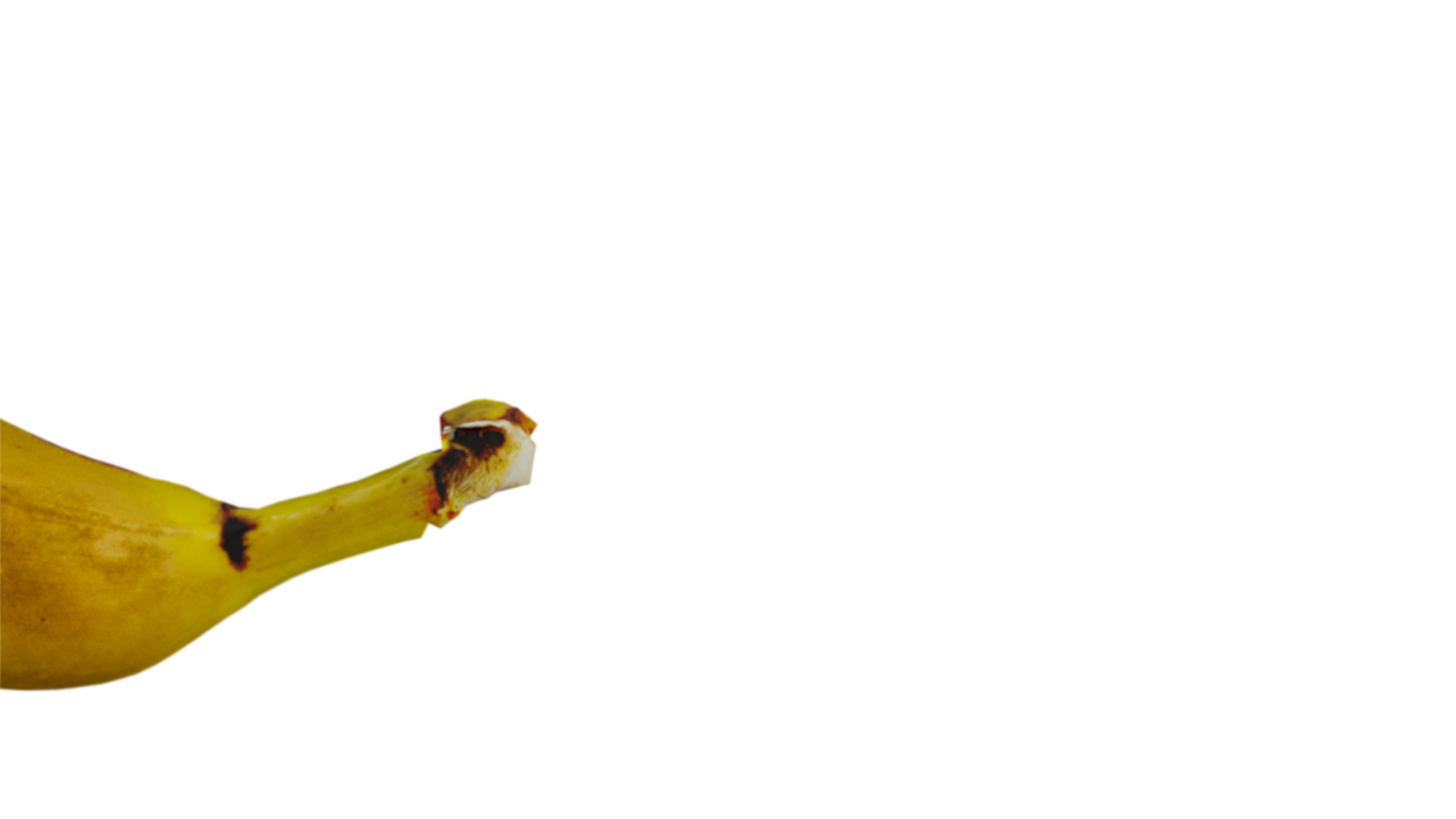
Endnotes
[1] The expression earworm is a calque from German word “Ohrwurm” describing a sticky music or stuck song syndrome.
[2] Opie, Frederick Douglass (July 2009). Black Labor Migration in Caribbean Guatemala, 1882–1923. Florida Work in the Americas. University of Florida Press.
[3] "Minor Cooper Keitmurderersh (1848–1929)". United Fruit Historical Society. 2001. Archived from the original on 2008-10-30.
[4] Palmer, Steven; Molina, Iván (1 January 2009). The Costa Rica Reader: History, Culture, Politics. Duke University Press. ISBN 978-0822382812.
[5] Immerman, Richard H. (1982). The CIA in Guatemala: The Foreign Policy of Intervention. Austin, Texas: Univ. of Texas Press. pp. 75–82. ISBN 9780292710832.
[6] Schlesinger, Stephen; Kinzer, Stephen (1999). Bitter Fruit: The Story of the American Coup in Guatemala. Cambridge, Massachusetts: Harvard University Press. pp. 90–97. ISBN 978-0-674-01930-0.
[7] Forster, Cindy (2001). The Time of Freedom: Campesino Workers in Guatemala's October Revolution. University of Pittsburgh Press. p. 202. ISBN 978-0-8229-4162-0.
[8] Schoultz, Lars (1998). Beneath the United States. Harvard University Press. ISBN 9780674922761.
